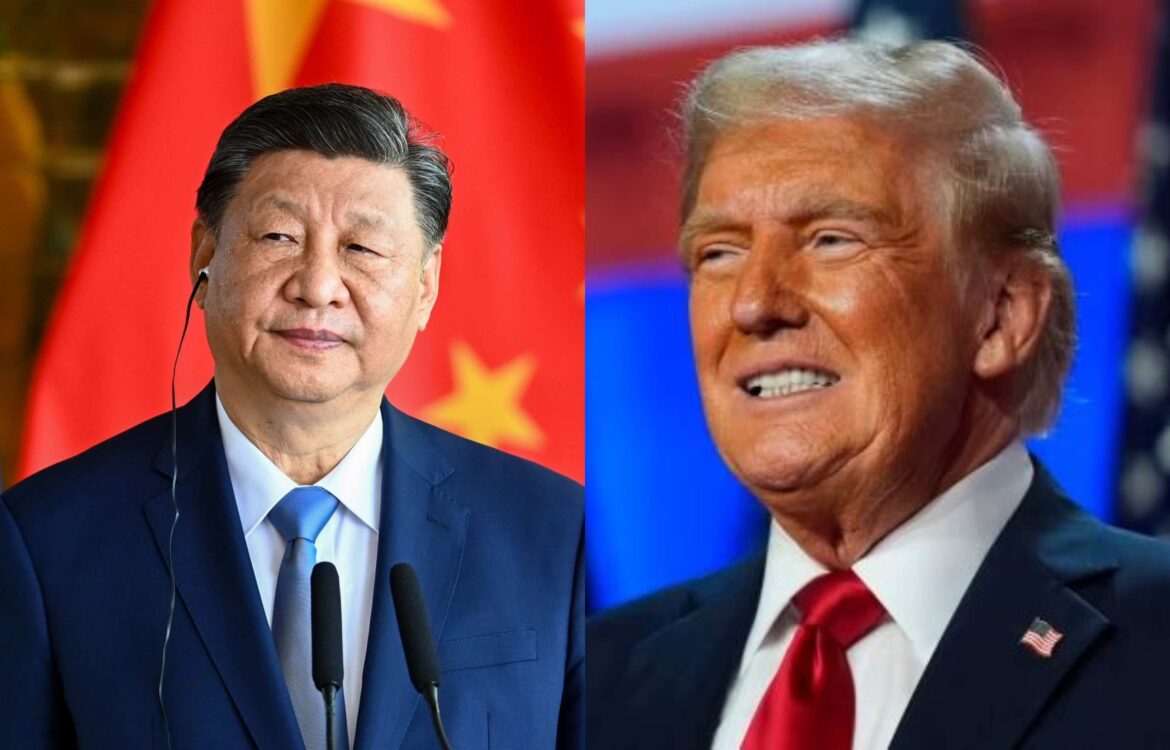Beijing, April 4, 2025 – In a bold retaliatory move, China has announced a sweeping 34% tariff on all U.S. imports, set to take effect on April 10, 2025. This decisive action comes as a direct response to former U.S. President Donald Trump’s aggressive trade policies, escalating tensions between the world’s two largest economies.
Escalating Trade War: China’s Countermeasure
The Chinese Ministry of Commerce confirmed the new tariffs, targeting a wide range of American goods, from agricultural products to manufactured goods. The move is seen as a direct retaliation to Trump’s earlier imposition of steep tariffs on Chinese exports during his presidency and his recent calls for even stricter trade restrictions.
According to Reuters, the latest tariffs could disrupt billions in trade, further straining diplomatic relations. Analysts warn that this development may trigger a new wave of economic retaliation, impacting global markets.
Economic and Political Fallout
The decision follows months of rising tensions, with both nations engaging in tit-for-tat trade measures. China’s latest tariff hike is expected to impact key U.S. industries, including agriculture, automotive, and technology. American farmers and exporters, already grappling with previous trade barriers, may face even greater challenges in accessing the Chinese market.
Also read: Democrats Challenge Trump’s Voter ID Executive Order in New Lawsuit – as political tensions rise in the U.S., legal battles add another layer to the ongoing conflict between parties.
Meanwhile, U.S. officials have criticized Beijing’s move, calling it “economic coercion” and vowing to defend American interests. The Biden administration, currently in office, now faces mounting pressure to respond, with potential repercussions for international trade dynamics.
Global Market Reactions
Financial markets reacted swiftly to the news, with stocks fluctuating as investors weighed the potential impact on global commerce. Economists caution that prolonged trade disputes could slow economic growth, particularly in sectors heavily reliant on bilateral trade.
As the April 10 deadline approaches, businesses on both sides are bracing for disruptions, with some exploring alternative supply chains to mitigate risks. The escalating trade war underscores the fragile state of U.S.-China relations, with no immediate resolution in sight.
What’s Next?
With tensions at a boiling point, the international community watches closely to see whether diplomatic negotiations will ease the standoff or if further retaliatory measures will follow. One thing is certain: the ripple effects of this trade clash will be felt across the global economy for months to come.
For the latest updates on U.S.-China trade relations, stay tuned to reputable financial and political news sources.




One thought on “China Strikes Back: Imposes 34% Tariff on All U.S. Goods in Response to Trump’s Trade Policies”
Comments are closed.